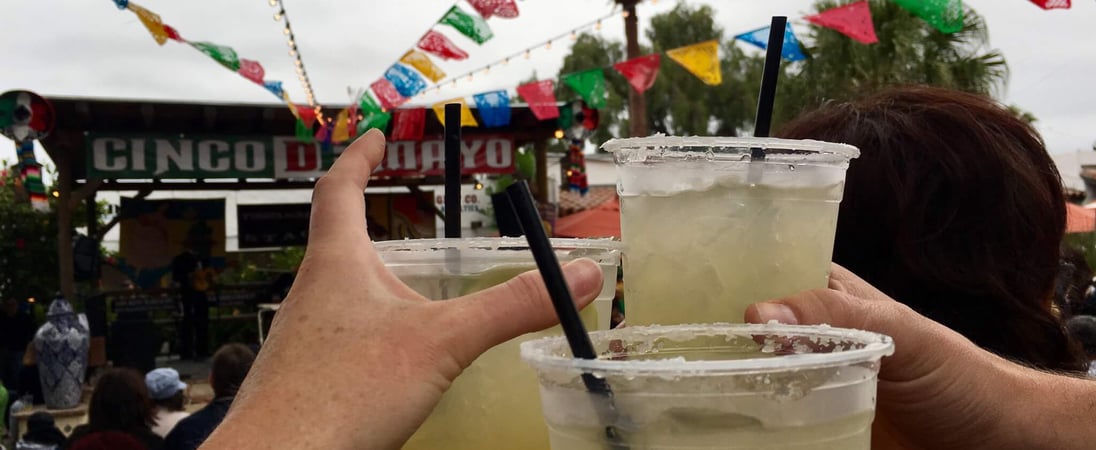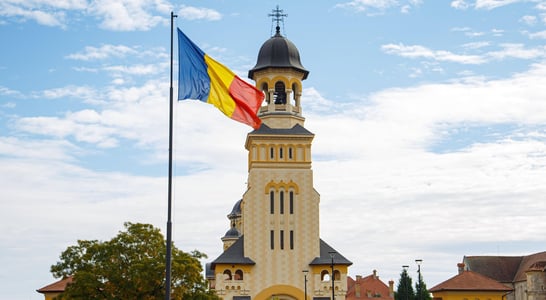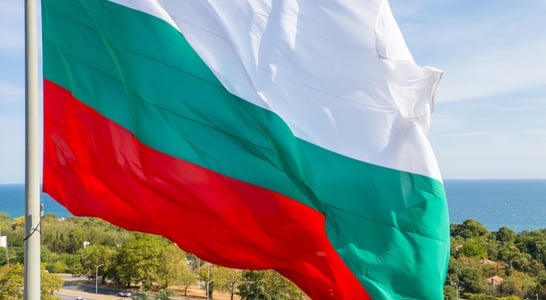
Cinco de Mayo
With delicious food, lively music, and colorful decorations, it's a time to come together and honor the bravery of the Mexican people.
Commemorating the Mexican Army’s victory over the French Empire at the Battle of Puebla on May 5, 1862, Cinco de Mayo is a holiday celebrated primarily in the state of Puebla and throughout Mexico, as well as in Mexican-American communities in the United States.
Contrary to much popular belief, Cinco de Mayo is not Mexican Independence Day, which is celebrated on September 16.
In Mexico, Cinco de Mayo is a regional holiday, but in the United States it has become a celebration of Mexican culture and heritage, particularly in areas with large Mexican-American populations.
It is often marked with parades, music, dancing, as well as eating lots of delicious Mexican cuisine.
How Cinco de Mayo Is Celebrated
In Mexico…
Cinco de Mayo is not a national holiday in Mexico, and is primarily celebrated in the state of Puebla, where the Battle of Puebla took place.
In Puebla, the holiday is marked with parades, military reenactments, and other cultural events. There are also numerous food festivals and culinary events that celebrate Mexican cuisine, including the traditional dish of mole poblano, which is a spicy sauce made with chilies and chocolate.
Throughout Mexico, Cinco de Mayo is also celebrated with traditional Mexican music and dancing, like mariachi and folklórico.
In addition, many people in Mexico participate in public festivals, carnivals and fairs, which often feature traditional Mexican games and activities, such as piñatas and donkey rides.
Elsewhere…
Cinco de Mayo is also celebrated in Mexican-American communities in the United States, where it has become a celebration of Mexican culture and heritage. In the United States, Cinco de Mayo is often marked with parades, music, dancing, and other cultural events.
Many cities in the United States with large Mexican-American populations, such as Los Angeles, Chicago, and Houston, hold Cinco de Mayo festivals and celebrations that feature live music, traditional Mexican food and drink, and cultural exhibits.
Some of these events are organized by Mexican-American community organizations, while others are sponsored by local businesses or government agencies.
Cinco de Mayo is also not a national holiday in the United States, but people still celebrate it as a way to honor Mexican culture and heritage, and to honor the contributions of Mexican-Americans to American society.
How Did Cinco de Mayo Become So Popular Around the World?
Cinco de Mayo has become popular around the world, particularly in the United States, for a number of reasons. One reason is that the holiday is associated with Mexican culture and heritage, which are celebrated globally through various cultural events and festivals.
This has helped to increase awareness and appreciation of Mexican culture and history, particularly in areas with large Mexican-American populations.
Another reason for the popularity of Cinco de Mayo is that it is a festive holiday that is often associated with music, dancing, and other ceremonies, which makes it an enjoyable and entertaining celebration for people of all ages.
Additionally, the holiday is often marked with the consumption of Mexican food and drink, which has helped to make it a popular celebration among foodies and those who enjoy trying new and interesting cuisine.
Finally, Cinco de Mayo has become popular around the world because it is a holiday that is associated with national pride and resistance to foreign domination, which are themes that resonate with people of many different cultures and backgrounds.
History of Cinco de Mayo
In the early 1860s, Mexico was in financial trouble and defaulted on its foreign debts. As a result, the country was invaded by several European powers, including France, which sought to collect on its debts and establish a colonial presence in Mexico.
In an attempt to drive the French out of Mexico, on May 5, 1862, the Mexican Army engaged the French at the Battle of Puebla. Despite being outnumbered and outgunned, the Mexican Army was able to defeat the French.
While the Mexican Army’s victory at the Battle of Puebla was ultimately short-lived and the French were able to occupy Mexico for several more years, the event is still celebrated as a symbol of Mexican national pride.
Cinco de Mayo FAQs
Did the Battle of Puebla influence the American Civil War?
Yes, it did. Mexico’s resistance against French forces at Puebla prevented France from aiding the Confederacy. This hindered Confederate plans and impacted the Civil War’s progression.
How did Cinco de Mayo become popular in the United States?
The first U.S. Cinco de Mayo celebration occurred in California in 1863. Mexican miners held patriotic events to support Mexico’s resistance against French rule.
Over time, the holiday evolved into a broader celebration of Mexican culture.
Is Cinco de Mayo widely celebrated in Mexico?
No, it’s not. In Mexico, Cinco de Mayo is primarily observed in the state of Puebla. The rest of the country treats it as a regular day, focusing more on Independence Day in September.
What are some unique Cinco de Mayo celebrations worldwide?
In Vancouver, Canada, an annual skydiving event marks the day. In Brisbane, Australia, Mexican festivals feature traditional music and dance.
These global festivities showcase the holiday’s international appeal.
Are there common misconceptions about Cinco de Mayo?
Yes, many believe it’s Mexico’s Independence Day, which is actually on September 16. Others think it’s a major Mexican holiday, but it’s more significant in the U.S. These misconceptions are widespread.
How did tequila become associated with Cinco de Mayo?
The commercialization of Cinco de Mayo in the U.S. led to its association with tequila.
Marketing campaigns by beverage companies promoted tequila consumption during celebrations, intertwining the drink with the holiday.
What traditional foods are associated with Cinco de Mayo?
Mole poblano, a rich sauce made with chocolate and spices, is often linked to the holiday. In Puebla, it’s a traditional dish served during festivities, reflecting the region’s culinary heritage.
How do schools in the United States celebrate Cinco de Mayo?
Many U.S. schools use Cinco de Mayo to teach about Mexican culture. Activities include music, dance performances, and lessons on Mexican history, fostering cultural awareness among students.
Is it appropriate to wear sombreros and ponchos on Cinco de Mayo?
While some view it as festive, others see it as cultural appropriation. It’s essential to approach such attire with respect and understanding of its cultural significance to avoid perpetuating stereotypes.
How has Cinco de Mayo influenced Mexican restaurants in the U.S.?
The holiday boosts business for Mexican restaurants, with increased demand for traditional dishes and beverages. Many establishments host special events, contributing to the celebration’s popularity.
Also on ...
View all holidaysNational Astronaut Day
Blast off into an out-of-this-world celebration! Learn about space, astronauts, and explore the cosmos. It's time to reach for the stars!
National Cartoonists Day
Take a walk down memory lane by revisiting the beloved, charming, often bizarre cartoons of your childhood like Calvin and Hobbes, or discover new ones.
International Midwives’ Day
Doctors and hospitals are a recent development for birthing. In the past, experienced women called midwives kept new mothers and babies safe during birth.
Revenge of the Fifth
Cheering for the dark side, and finding fascination in characters who embrace their complexity and challenge traditional notions of good and evil.








